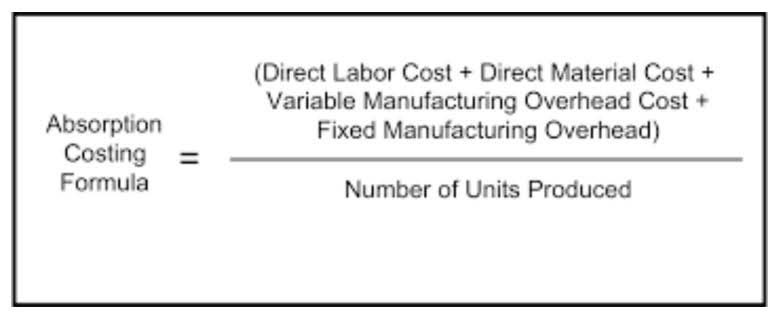
The overall administrative burden on their staff was drastically reduced. This allowed their leaders to focus on their core mission, knowing their finances were efficiently managed and compliant with IRS requirements. Dedicated accounting software for your church will streamline your processes, reduce accounting errors, and save time on administrative tasks. Let’s explore the essential guidelines and best practices every church should follow to maintain financial integrity. Kristine Ensor is a freelance writer with over a decade of experience working with local and international nonprofits. As a nonprofit professional she has specialized in fundraising, marketing, event planning, volunteer management, and board development.
Thought leadership
- Otherwise, log into your church’s fund accounting software at least twice a week to update all transactions.
- The primary purpose of this report is to provide a transparent and detailed overview of an organization’s financial activities, emphasizing how they align with the mission and objectives.
- Your church wants to make the world a better place by investing time, resources, and funds into the community, so the government chooses to credit organizations like yours with certain benefits.
- However, balance sheets and profit and loss reports provide overall insight into your financial health.
- Having a dedicated church finance committee can greatly aid in overseeing these responsibilities and ensuring compliance.
- For this reason, you need church accounting software designed to handle fund accounting.
Proper accounting ensures that donations are used appropriately, helps in planning outreach programs, and plays a crucial role in maintaining the bookkeeping and payroll services church’s tax-exempt status. Unlike for-profit businesses, churches often manage multiple funds with specific purposes such as building, ministries or mission funds. The chart of accounts allows you to track each fund separately, ensuring transparency and responsible allocation of resources. Make sure your accounting solution can handle the unique aspects of church accounting discussed above, such as categorizing multiple revenue streams and creating the financial statements used by nonprofits. If your church wants to pursue grant funding, look for a platform that includes grant management tools to make the process easier.

How to protect your tax-exempt status and demonstrate financial stewardship

Fund accounting will keep track of the different types of donations you receive and ensure they are allocated to the right expenditures. This ensures transparency, helps track fund usage, and builds trust with donors by showing that designated gifts are used appropriately. Accounting software handles tithing, other forms of contributions, and fundraising events. The software should also handle administrative work, like incoming and outgoing payments, and budgets. For this reason, you need church accounting software designed to handle fund accounting. Extra benefits in a platform include giving tools and presenting your data concisely to those who have given.
- If your organization needs to hire someone to manage the books, you might want to consider outsourcing instead.
- Unlike other nonprofits, churches are automatically considered tax-exempt if they meet these criteria and are not required to file Form 1023 with the IRS.
- If members receive reports they don’t understand, it could breed distrust.
- It includes detailed entries for income, expenses, assets, and liabilities, supporting the preparation of financial statements and ensuring comprehensive financial tracking.
- Choosing the right software can make a significant difference in the efficiency and accuracy of accounting processes.
- Parable Church Accounting, an accounting service specifically for churches, faced significant challenges with manual expense management involving paper receipts, spreadsheets, and manual reconciliations.
How To Track Your Church’s Revenue
- This ensures that the same person is not responsible for ALL matters relating to managing the church’s finances.
- Diversifying your revenue streams is an effective way to bring in more money for the church.
- Be aware of these forms to ensure the church complies with tax regulations and avoids penalties.
- Managing payroll and compensation in churches requires compliance with both labor laws and church-specific guidelines.
- By establishing a well-defined chart of accounts, creating a realistic budget and implementing internal controls, you’re laying the groundwork for strong financial stewardship in your church.
- The process of church accounting is most similar to nonprofit accounting, since every church is also required to reinvest all of its funds into the organization and its mission.
To really understand the difference between these two bookkeeping systems, you must understand some basic accounting concepts. The designation will also maintain transparency with donors allowing them to see how their funds are used. However, there are some instances where it makes sense to outsource.
- Without a strong system in place, churches could end up facing fines and penalties and may deal with general financial disorganizations.
- Regular audits, both internal and external, provide an objective review of financial processes and identify potential weaknesses.
- The overall administrative burden on their staff was drastically reduced.
- It offers regular e-newsletters containing the latest news and updates, as well as technical helpsheets, webinars and discounts on ICAEW events.
- This statement offers a detailed breakdown of an organization’s expenses by function and nature during a specific accounting period, usually a fiscal year.
Benefits of Fund Accounting
Otherwise, log into your church’s fund accounting software at least twice a week to update all transactions. A fund accounting software designed for churches is the best option. Choose one that’s user-friendly, has excellent reviews, and is church accounting affordable.
Setting Up Your Church’s Accounting System

Outsourced bookkeeping can help your church handle these tasks, while offering advice on changing tax requirements and codes. Maintain detailed and accurate records of all financial transactions and cash flow, including donations, expenses, payroll, and grants. Proper documentation of any financial data helps you stay prepared for audits and will help you provide evidence of compliance with regulatory and tax guidelines. Tracking your church’s revenue is important; the best church accounting guidelines dictate that each type of revenue be tracked as well. Not only does this ensure accountability, but it will also help with your budgeting and financial reporting. what are retained earnings Here are some quick examples of your church’s revenue sources and how you can track them.
